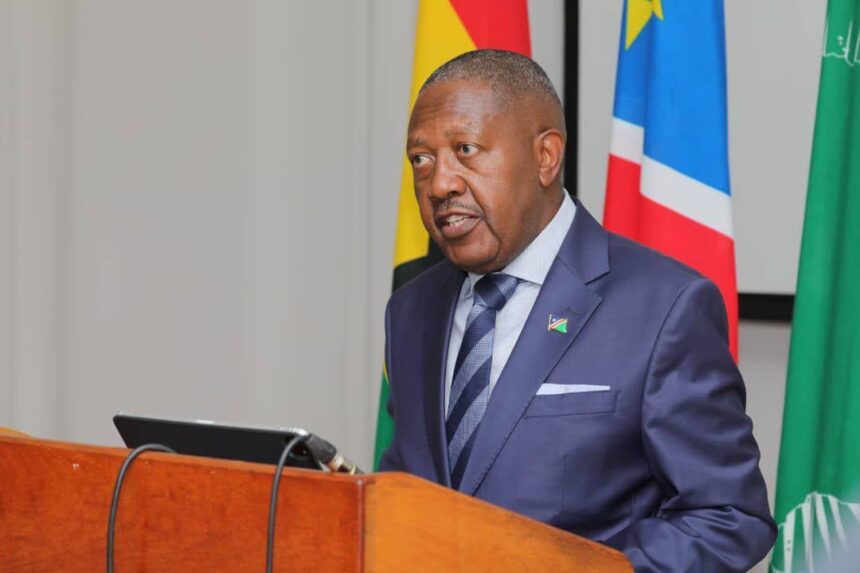Linea Dishena
The government is having discussions with the United States of America (USA) regarding president Donald Trump’s 21% import tariffs on Namibian goods as from April 2025.
This was confirmed by International Relations and Cooperation executive director, ambassador Penda Naanda, in an interview last week.
The US has increased import tariffs to all its trading partners, including Namibia, which exports fish, beef, uranium and diamonds to the American market.
In an interview with Nampa last Wednesday, Naanda said the government is actively pursuing diplomatic channels to address the impact of the tariff hike on Namibia’s trade interests and economic stability.
“Negotiations are conducted over a lengthy period. So, we are still in the process of concluding the terms of what we are going to agree on. These issues take place over a long period. It is not just something that you go in and say, and get what you want. But we are engaging them,” he said.
Naanda added that the ongoing negotiations are being done in conjunction with the framework of the Southern African Customs Union (Sacu), which Namibia is an integral part of.
Meanwhile, Chinese ambassador to Namibia Zhao Weiping said the two countries must use the current ‘trade war’ to strengthen economic bilateral trade.
Speaking at a media conference on Tuesday, Weiping said: “In the current global trade situation, it is important to further boost our bilateral economic cooperation. I think we share this determination and idea with our Namibian friends.”
The US has imposed a 145% tariff on imports from China, with the Asian economic giant hitting back with a 125% tariff on American goods.
However, both countries recently agreed to lower tariffs from 145% to 30%.
China dropped 10% over a period of 90 days.
The Namibia Statistics Agency’s February 2025 trade bulletin shows that China was Namibia’s second-largest export destination with a share of 23.3% and 10% tariff for imported goods.
The US emerged among the top five import markets for Namibia.
Industries, mines and energy acting deputy director for petroleum downstream Abednego Ekandjo said higher tariffs on Namibian goods mean Namibian producers and services will find it difficult to compete in international trade.
This will then force them to cut down on production, or withdraw from such uncompetitive markets.
“In trade negotiations, the Namibian government must ensure it protects Namibian businesses from a competitive disadvantage in international trade. A fall in production has a direct impact on employment. To save costs, businesses might be forced to retrench, which then negatively impacts the incomes of workers, resulting in reduced domestic consumption spending, leading to reduced tax revenue,” he added.
Ekandjo noted that it is important for Namibia to ensure its long-term policies are aimed at transforming the country into a self-sufficient, industrialised nation. -Nampa


